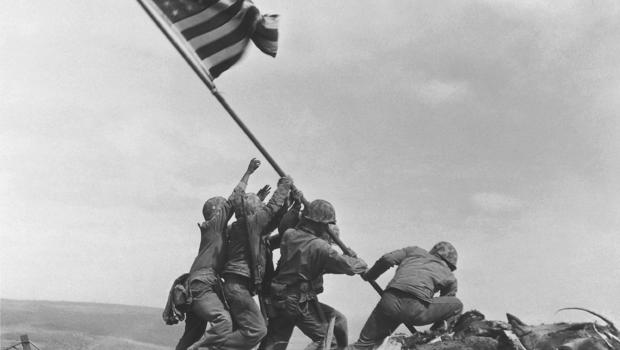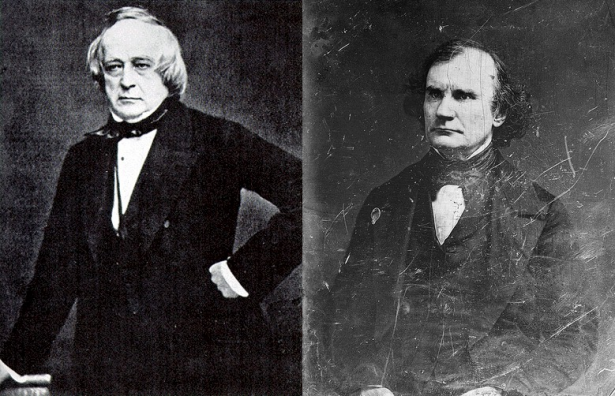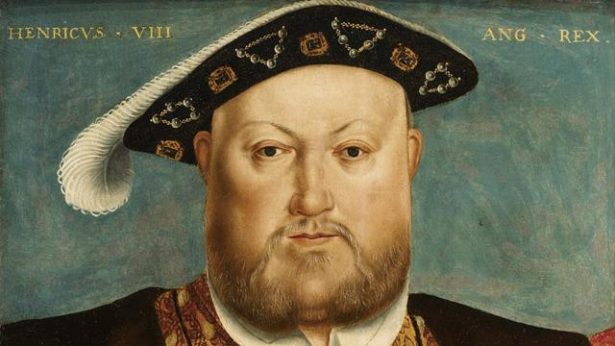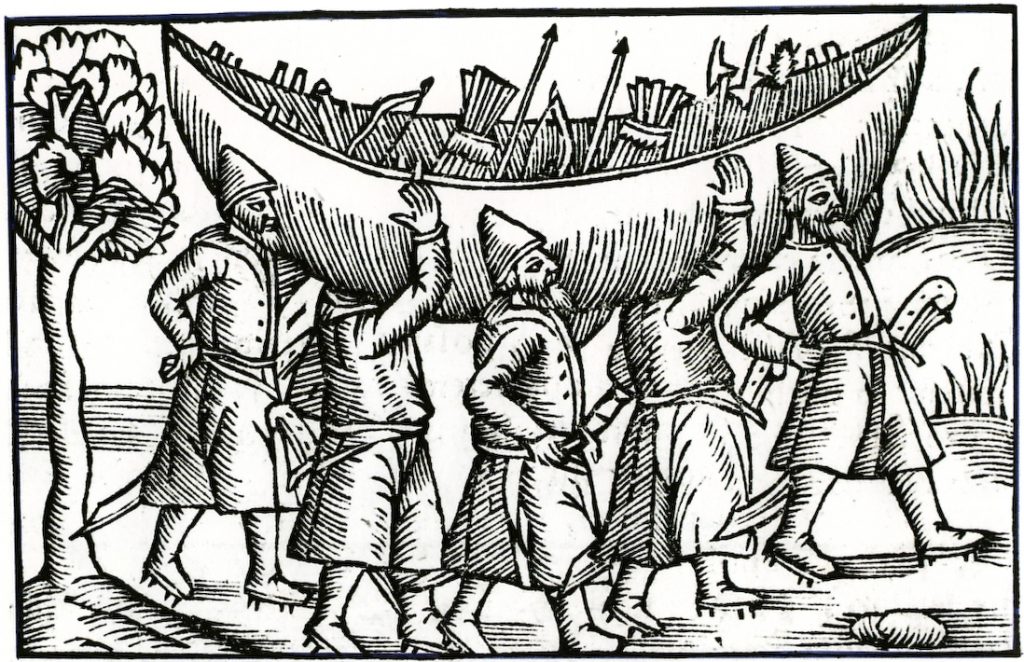One of my favorite topics to think about is the concept of alternate history. For those of you who are not in the know, it is a genre that involves changing one event in history in order to explore an alternate world. However, not all of these stories have outcomes that are remotely plausible. Just for fun, I thought we’d take a look at some of them.
Just to give you fair warning, there are some big concepts on this list. I invite everyone to offer their opinions in the comments below!
1. Nazi Germany Survives Or Wins World War II.
As Seen In: The Man In The High Castle.
The concept of Nazi Germany winning the Second World War is perhaps the godfather of the alternate history genre. As you might be able to tell from the image above, the stories often invoke themes of authoritarianism vs. freedom, the new normal, the nature of evil, and the power of ideas. The resulting world could involve anything from a vastly different Cold War between fascism and capitalism to the bleak setting of a fascist-dominated planet.
However, none of it is very plausible for one very good reason. It often involves kneecapping the Allies and Soviets so badly that they cannot hope to recover. If we take the setting of Castle, for instance, it suggests that the early death of Franklin D. Roosevelt would doom the world. However, that neglects the fact that a lot of his policies were inspired by his brain trust, such as how Frances Perkins championed Social Security. It’s entirely possible that a President John Garner could have been talked into certain policies to combat the Depression, much like how he pushed through several pieces of the New Deal in our world.
But what about the war itself? Whoever ended up being President in 1939 would be forced to recognize that the war would inevitably impact the United States short of having the Allies win outright. In our world, public support was split between interventionism or isolationism. It began to nudge towards entering the fight as Japan rampaged throughout the Pacific and the Nazis lit the fuse of war in Europe. From there, it’d only a matter of time before the Axis provoked a war with the United States.
2. Britain And France Intervene In The American Civil War.
As Seen In: The Stars and Stripes Trilogy by Harry Harrison.
If the concept of a Nazi victory was listed as the granddaddy of the alternate history genre, this would arguably be the grandmother. In our world, a Confederate victory in the American Civil War hinged upon the idea that foreign intervention would be necessary through the idea of “cotton diplomacy.” It was a Southern boast that their cotton exports were so great that they could bring Europe to its’ knees and get them to do whatever they wanted, which culminated in the Trent Affair of late 1861.
It also meant that the Confederacy was filled with total dumbasses who had no firm grasp on reality.
For one thing, Jefferson Davis and his diplomats did not consider that there were alternate methods of making clothing. In our world, the British Empire created new cotton sources in Egypt and India, but it could have also made things out of wool or other fibers. To make matters worse, the British were staunchly abolitionist, dependent upon Union grain, and concerned about the possibility that war would lead to the loss of Canada. There was also the little issue of how the British made a ton of money bankrolling railways and construction projects in the North. Oh, and the fact that President Lincoln outmaneuvered them in every respect.
And even if the British and French had forced a mediation or went to war, what would they have gained? At best, the Confederacy would have become an agricultural & pro-slavery nation. However, that would have still left the United States as a rising industrial powerhouse that would have been incredibly pissed off at Europe.
3. No Protestant Reformation.
As Seen In: The Alteration by Kingsley Amis.
The Protestant Reformation marked a major turning point in world history. For the first time in hundreds of years, there were enough people in 16th century Europe that were dissatisfied and critical of the Catholic Church to split off from it. The resulting schism created all sorts of different denominations of Christianity, which eventually became the Baptists, Methodists, and a number of other sects that we know today.
The strange thing about this particular point of divergence is that it is dependent upon averting our eyes from the numerous other brands of Christianity that had gained small followings over the years. If any one of them had gained enough traction, there may have been an earlier version of the same event. If the Protestants that we know had been suppressed, it is entirely possible that they would either spread their message underground or a second Reformation would have been attempted at some point in that new future.
Some ideas can be killed, but others are inevitable with the passage of time and the creation of technology.
4. The Vikings Colonize North America.
As Seen In: The United States of Vinland by Colin Taber.
Aside from being feared pillagers and raiders in the early medieval era, the Vikings had a second claim to fame by becoming the first Europeans to reach North America. We can find a few settlements here and there in Newfoundland, so it’s easy to wonder why they didn’t settle on the edge of North America. After all, they would have gotten the jump on the rest of Europe toward wealth and riches, right?
Well, no.
Apart from their trade in lumber, the Vikings didn’t have enough technology or centralized governance in that era to establish a colony like the English, French, Spanish, and Portuguese would several centuries later. In short, they had an isolated colony, very little oceanic trade, no firearms, and none of the other inventions that made survival easier in an unforgiving wilderness. And let’s not even get started on the fact that an outbreak of diseases would have been highly improbable because of the lack of these factors.





Thanks for sharing, this is a fantastic article post. Great.